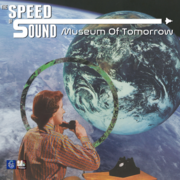New York, NY (Top40 Charts) Norwegian saxophonist, composer and artist Bendik Giske will release his new album, Cracks, on August 27th via Smalltown Supersound. Following lead single, "Flutter," Giske is thrilled to present two remixes of the album's centerpiece, "Cruising," by LaurelHalo. An admirer of Giske's work, Halo molds the track to highlight the amorphous qualities of his music, which effortlessly meanders into a variety of spaces - club, ambient, and experimental, to name a few. Halo's remixes are beautiful, surging with a mix of dreamlike synths, water-like oscillations, beats, and saxophone.
2Cracks follows Giske's 2019 acclaimed debut, Surrender, and Untitled, a collaborative project with Pavel Milyakov aka Buttechno released earlier this year. Collaborating with producer André Bratten, Cracks sees Giske using his signature physical and hypnotic techniques in addition to Bratten's extensive studio of electronic machines, including the new "resonant" space of Bratten's reactive studio tuned to his original sounds. If this new studio-as-an-instrument process has brought Giske one step closer to the man-machine, it's also a way to bridge the separation - or crack - between the two. This kind of liminal space, according to Giske, is to be treasured.
The body is important for Giske, not just in the strength and muscle control required toaccomplish his mesmerizing circular breathing on the saxophone. Body is implied in his sense of queerness, which has helped him create his own sound, blossoming luxuriantly not only on record but also in his striking, embodied performances. As such, in the past Giske has likened his performance to transmuting electronic music through all of his human faults, akin to becoming a machine. With Cracks, he introduces a new set of parameters for the automated processes of his muscle memory to work against. In a sense, you could call it generative music - a term coined by Brian Eno to describe music made within a set of rules that can constantly evolve within that system. But here the only algorithms at work are responding to Giske's self-imposed constraints (or parameters) - like the afore-mentioned circular breathing. As a practice, it induces in the player - and perhaps the listener, too - a kind of altered state, more open to discovery, and as a cycle of sound it defies time.























